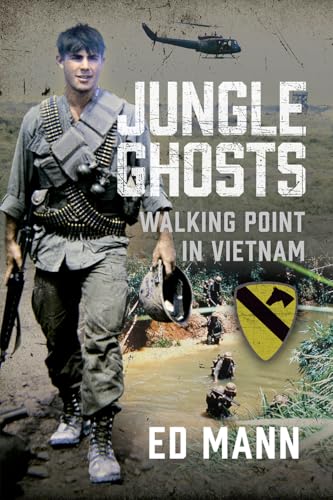
Captain, Infantry
by Jr. Leo V. Kanawada
"A Vietnam War Memoir"
Popularity
2.61 / 5
* A book's popularity is determined by how it compares to all other books on this website.
Where to buy?
Buy from Amazon* If you buy this book through the link above, we may receive a small commission at no extra cost to you.
Captain, Infantry by Jr. Leo V. Kanawada
Details
War:
Vietnam War
Perspective:
Infantry
Military Unit:
US Army
True Story:
Yes
Biography:
Yes
Region:
Asia
Published Date:
2015
ISBN13:
9781504915199
Description
Brief Summary
In Captain, Infantry, author Leo V. Kanawada, Jr. shares his personal experiences as a U.S. Army officer during the Vietnam War. The memoir begins with his journey in 1965 when he undergoes training at Fort Benning with an emphasis on jungle warfare. Initially expecting to serve in Vietnam, his first orders take him to Korea, where he serves as an infantry officer with the Second Infantry Division. Later, he volunteers for a second tour, this time in Vietnam, where he holds various roles, from administrative officer to platoon leader. Through his narrative, Kanawada provides insights into the day-to-day life of a soldier and the complexities of military operations during a turbulent period in history.
Main Themes and Topics
One of the primary themes in Captain, Infantry is the unpredictability and challenges of military life. Kanawada brings to light the sudden changes in assignments and the adaptability required of soldiers. The book also delves into the theme of service and duty, as seen in Kanawada's decision to volunteer for additional tours in Vietnam. His narrative captures the camaraderie and complexities of military brotherhood, as well as the strategic and tactical decisions involved in war. Additionally, Kanawada reflects on U.S. foreign policy, particularly in the context of the "America's Korea Model" and its implications.
Writing Style and Tone
Kanawada's writing style in Captain, Infantry is straightforward and factual, providing readers with an honest account of his experiences. His tone is reflective, often interspersed with personal anecdotes that offer deeper insights into the emotional and psychological landscape of a soldier. The inclusion of insights from prominent military historians adds a layer of depth and context to his firsthand narrative, making the memoir both informative and engaging for readers interested in military history.
Criticism
While Captain, Infantry is appreciated for its detailed recounting of military life, some readers might find the narrative somewhat fragmented due to shifts between different assignments and locations. Additionally, those looking for a broader historical analysis might find the memoir more focused on personal experiences rather than a comprehensive overview of the Vietnam War. However, for readers interested in personal military accounts, Kanawada’s memoir provides a valuable and authentic perspective.









